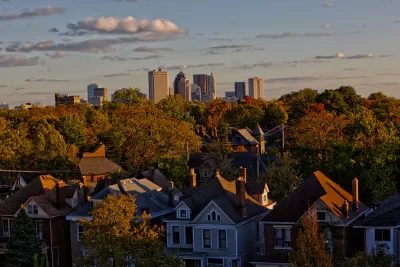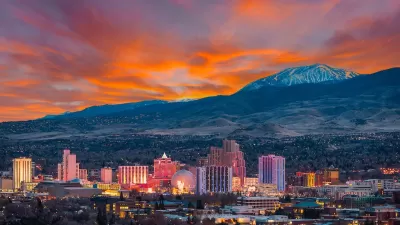Columbus has approved six zoning code amendments, which include height limit increases from three stories to 16 and eliminate parking requirements for large developments in 12,300 parcels along major transportation corridors.

The Columbus Dispatch reports that the “Columbus City Council voted Monday to overhaul the city's zoning code, paving the way for new higher-density development in parts of the city.” The unanimous vote on all six resolutions amending the city’s zoning code comes after years of planning and months of public meetings and concerns about how increased density would affect the city. “At the Monday meeting, council members said the change will help modernize the code into a more lenient process, eliminate delays, keep up with Columbus' growing population, and ease the housing shortage in the future,” as well as fix “a broken system plagued by a history of redlining, or discriminatory financial practices historically used against marginalized communities such as racial or ethnic minorities,” writes reporter Cole Behrens.”
As part of the zoning changes, Columbus has targeted 12,300 parcels along major bus corridors throughout the city and allows for case-by-case height and parking variances to help increase the number and affordability of new housing units. Building heights in these zones, previously restricted to 35 feet, can now go as high as 16 stories along some major streets; in most instances, to get the maximum height allowed, developers will have to meet an “affordability requirement” that “grants them two to four extra stories, based on the category, if developers provide the required amount of affordable housing.” The code also eliminates parking requirements for large developments, which previously were required to provide hundreds of off-street parking spaces, often in the form of expensive underground garages.
FULL STORY: Columbus approves sweeping zoning changes, increasing height limits in parts of city

Planetizen Federal Action Tracker
A weekly monitor of how Trump’s orders and actions are impacting planners and planning in America.

Congressman Proposes Bill to Rename DC Metro “Trump Train”
The Make Autorail Great Again Act would withhold federal funding to the system until the Washington Metropolitan Area Transit Authority (WMATA), rebrands as the Washington Metropolitan Authority for Greater Access (WMAGA).

The Simple Legislative Tool Transforming Vacant Downtowns
In California, Michigan and Georgia, an easy win is bringing dollars — and delight — back to city centers.

Albuquerque’s Microtransit: A Planner’s Answer to Food Access Gaps
New microtransit vans in Albuquerque aim to close food access gaps by linking low-income areas to grocery stores, cutting travel times by 30 percent and offering planners a scalable model for equity-focused transit.

This City Will Pay You to Meet Your Neighbors
A North Kansas City grant program offers up to $400 for residents to throw neighborhood block parties.

Commentary: Our Silence Will Not Protect Us
Keeping our heads down and our language inoffensive is not the right response to the times we’re in. Solidarity and courage is.
Urban Design for Planners 1: Software Tools
This six-course series explores essential urban design concepts using open source software and equips planners with the tools they need to participate fully in the urban design process.
Planning for Universal Design
Learn the tools for implementing Universal Design in planning regulations.
Smith Gee Studio
City of Charlotte
City of Camden Redevelopment Agency
City of Astoria
Transportation Research & Education Center (TREC) at Portland State University
US High Speed Rail Association
City of Camden Redevelopment Agency
Municipality of Princeton (NJ)





























